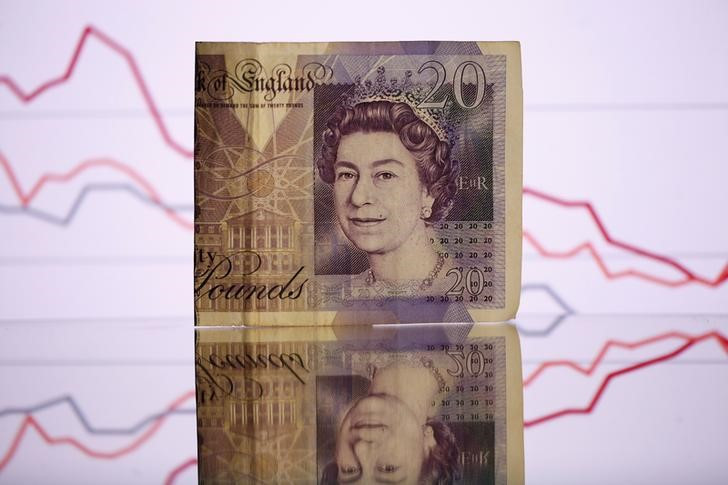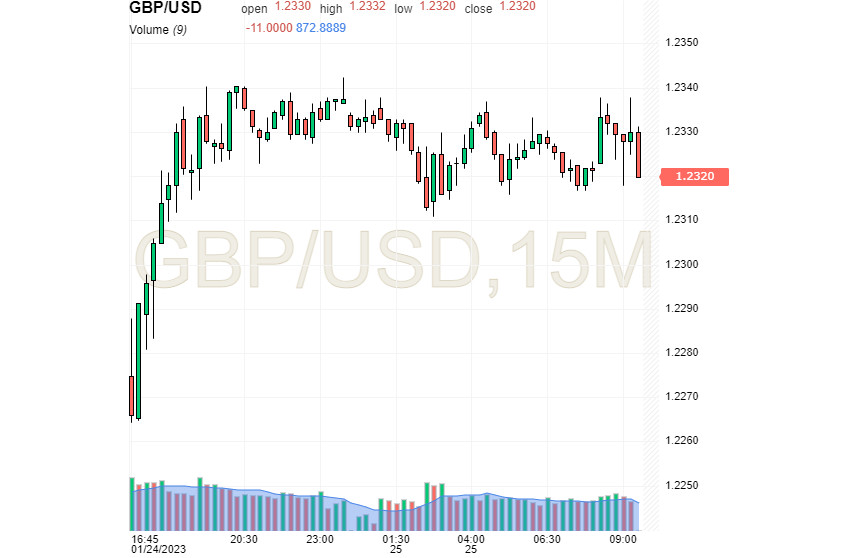
The British currency successfully resists the downtrend, although the periodical GBP slump gives investors a reason to be pessimistic. However, sterling refuses to stand still.
At the beginning of the week, the pound lost ground, giving way to the dollar. The pound's brief decline was caused by the disappointing PMI data on the UK economy. According to experts, the UK economy slowed more than expected in January. This contrasted sharply with the unexpectedly strong performance of the euro area, experts emphasize.
The UK Services PMI was 48 points in January 2022, missing market expectations of 49.7. Recall that a PMI reading under 50 suggests contraction in the key sector of the British economy at the beginning of this year.
A minor drawback was the rise in the UK manufacturing PMI, which improved to 46.7 points in January. This was a pleasant surprise for both investors and the British economy. However, the divergence in both sectors confused the pound, which fell significantly.
According to analysts, the current PMIs reflect the difficult situation in the UK economy, which has to exist under conditions of high energy prices and disruptions in energy supplies. The protracted Russian-Ukrainian conflict and rising inflation in the country add more fuel to the fire. Against this background, markets are waiting for the Bank of England to take decisive action to combat inflation. However, the central bank has been criticized for moving too slowly. The current PMI data indicates the onset of recession in the British economy.
According to experts, the BoE is very cautious in its actions aimed at stabilizing monetary policy. The central bank has taken a wait-and-see attitude to high inflation. Economists believe that the BoE will decide to soften its monetary policy next year in order to support the national economy. However, a dramatic change in monetary policy is unlikely this year.
According to market participants, deteriorating macro data could force the central bank to hike interest rates by 25 bps at the February meeting. However, this is half as much as the markets expected, as they anticipate a 50 bp hike. Such reduction in rates will weigh on the pound, experts say.
In this backdrop, sterling took advantage of the dollar's short-term weakness and entered a bullish correction. As a result, the GBP/USD pair climbed above support at 1.2240. However, on Tuesday, January 24, GBP/USD fell to 1.2345, hitting the 1.2400 high before the release of January macro data. And so the downtrend remained in force. On Wednesday, January 25, GBP/USD traded near 1.2320, trying to move beyond the current range.

According to analysts' estimates, the BoE's attempts to reduce inflation by increasing interest rates were unsuccessful. At the same time, economic indicators for the UK are in sharp contrast with the data on the euro area. Recall that the EU PMI improved in December, and the EU services PMI rose to 50.7 in January 2023. Other EU PMIs were up too: for example, the eurozone composite PMI came in at 50.2 in January - the highest over the last few weeks.
According to preliminary forecasts, the current positive macroeconomic indicators of the eurozone will help the region to avoid recession. At the same time, the economic position of the UK is more precarious than that of the EU countries. According to analysts, the divergence between the indicators of the eurozone and the UK is not in favor of the latter. In this backdrop, the GBP/USD pair will remain under pressure, providing the pound with volatility.





















